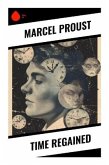In "The Golden Ass," Lucius Apuleius masterfully weaves a rich tapestry of adventure, transformation, and the quest for enlightenment through the misadventures of its protagonist, Lucius. This unique novel, the only complete Roman novel to survive, is renowned for its engaging prose and intricate narrative style, featuring a mix of humor, philosophy, and allegory. The work, composed in the second century AD, also presents a vivid exploration of the religious and cultural milieu of the time, notably through its incorporation of the mystery religion of Isis, reflecting a societal longing for transformation and redemption amid the complexities of human existence. Apuleius, a North African philosopher and writer, drew on his own extensive background in Platonic philosophy and a deep engagement with various cultural influences, including Greek and Roman traditions. His life experiences, particularly his journey of self-discovery and his interest in metaphysical themes, inform the philosophical undertones of "The Golden Ass." Apuleius's ability to blend satire with serious inquiry showcases his innovative approach to narrative fiction and positions him as a pivotal figure in the transition from classical literature to the more introspective forms of the later Roman Empire. For readers seeking a deep literary engagement, "The Golden Ass" offers a remarkable exploration of identity, metamorphosis, and the pursuit of wisdom. Its blend of comedic elements with profound philosophical insights makes it a timeless work that not only entertains but provokes thoughtful reflection on the nature of the human condition. This novel is an essential read for anyone interested in the intersections of literature, philosophy, and the cultural practices of ancient Rome.
Bitte wählen Sie Ihr Anliegen aus.
Rechnungen
Retourenschein anfordern
Bestellstatus
Storno








